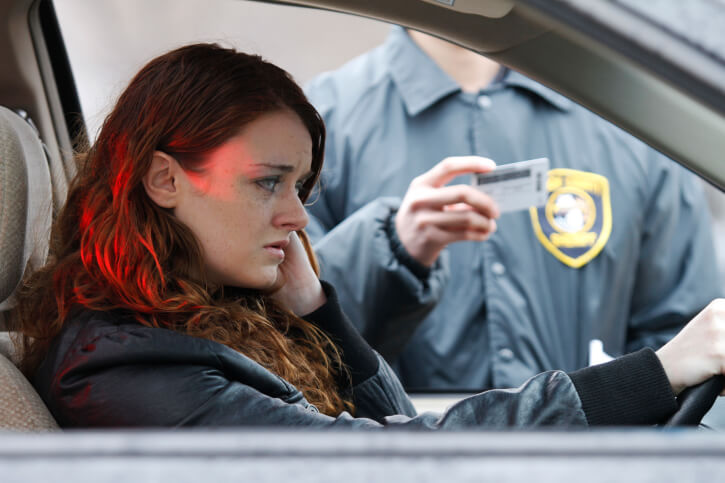
Stopped for DUI in South Dakota: 6 Things to Know
South Dakota has a number of laws designed to punish young people who drink and drive. Like most states in the country, the legal driving limit for drivers under the age of 21 is only .02 blood alcohol concentration (BAC). Other laws in the state focus on trying to avoid young people getting behind the wheel with too much to drink. For example, the state’s Social Hosting law makes it illegal for an adult to host an underage drinking party in the state. The host of a party who allows people under the age of 18 to drink alcohol can be arrested. Additionally, someone over the age of 21 who buys alcohol for a minor has committed a serious misdemeanor punishable by up to one year in jail.
If you are a juvenile or adult driver stopped for DWI in South Dakota, here are six things you should know.
1. Implied consent and sobriety testing
Drivers in South Dakota have consented in advance to chemical testing if stopped by a police officer with probable cause to suspect a DWI. The state’s Implied Consent Law says drivers must agree to a test of their urine, breath or blood to determine blood alcohol concentration (BAC). Drivers must be tested as soon as possible or the effects of any alcohol will leave their systems. While the consent law requires drivers to agree to a chemical test, it does not apply to a field sobriety test, the roadside test of a driver’s ability to walk or perform other simple actions. Lawyers say drivers can legally refuse to submit to this test, which has been attacked in South Dakota and nationally for being unreliable and flawed.
2. Refusing the chemical test
DWI defense attorneys say that unless you believe you are drunk and likely to register a high BAC, there is little reason to refuse the test. A driver who refuses will lose his or her license for a year and be required to take 8 hours of Alcohol Education classes to have the license reinstated. On top of that, it is not uncommon for the state to convict a driver of impaired driving without a BAC reading. That’s possible with the testimony of the police officer, including the chemical test refusal, which prosecutors will argue is a tacit admission of guilt.
3. Assume you’ll be on video
It has been estimated that in 2015, more than one-third of all police officers wore miniature body cameras. Combined with cameras in patrol cars, it’s safe to assume any DWI stop will likely be filmed. That’s important to consider, criminal defense attorneys say, because that video is a crucial piece of evidence. Prosecutors can point to any erratic movements or excessive conversation as evidence of impairment. Drivers should be polite and hand over the documents requested by a police officer – but beyond that, a driver stopped for DUI should say and do as little as possible. That includes refusing a request to search the vehicle. Officers can only search vehicles with probable cause or consent, and there’s no reason to provide that consent, according to attorneys. You should, however, get out of your car if an officer so orders.
4. More than .08 to worry about
It’s possible for the drivers in one household to be legally impaired in South Dakota at three different levels of BAC. For most adult drivers, the legal limit is .08, though it’s possible to be charged at .05 if there also is evidence of impaired driving. Drivers with commercial licenses have a stricter limit of .04 BAC. The strictest limit in the state of .02 applies to drivers under the age of 21.
5. DUI penalties in South Dakota
For a first offense DUI with no aggravating factors, the punishment in South Dakota is a fine of up to $2,000, a license suspension between 30 days and 1 year and a potential jail sentence of 1 year – though first offenders often are offered community service or education classes instead of jail time. A second offense within 10 years is punishable by up to 1 year in jail and a fine of up to $2,000, along with a minimum driver’s license suspension of 6 months and a maximum of 1 year. A third offense within 10 years can be punished by up to 2 years in jail, a 1-year license suspension and a $2,000 fine. The penalties are more serious when the BAC is higher, a juvenile was in the vehicle or an accident with injury was involved.
6. Total cost of a DUI in South Dakota
There are many expenses a driver convicted of a first DUI in South Dakota must pay. These include bail and towing fees, which can vary, up to $200 to reinstate a driver’s license, the cost of programs and classes ordered by the court, and the two most significant expenses – legal fees and car insurance. One criminal defense attorney in the state estimated the increased cost of car insurance over a 3-year period could be as high as $6,000. A DWI defense attorney could cost between $1,500 and $15,000, though a first offense is usually not on the high end of the range.
This article is for informational purposes only. If you need legal advice you should consult an attorney.